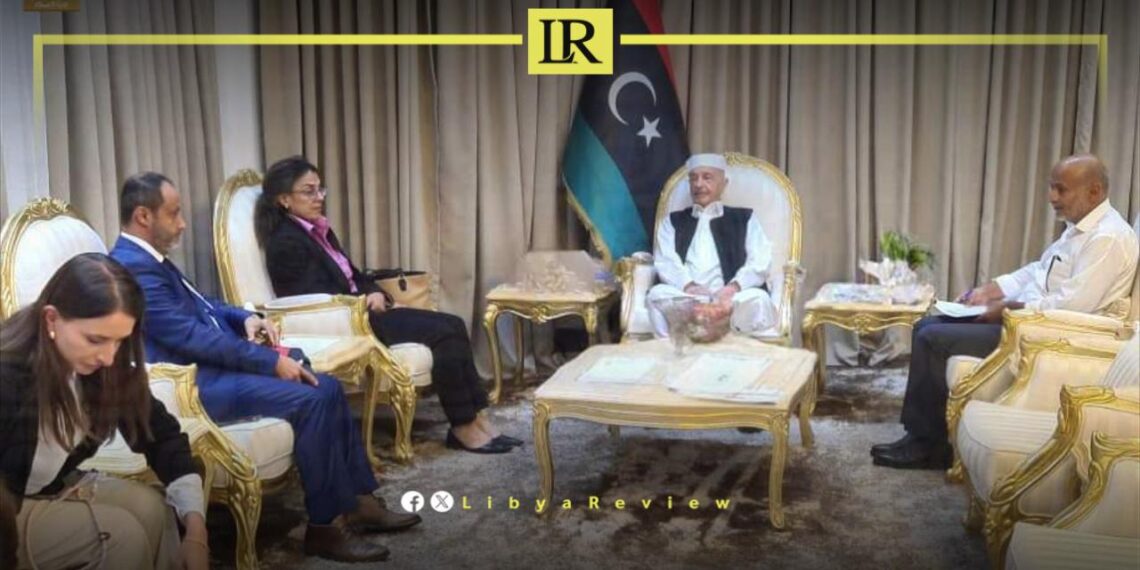On Thursday, Libyan Parliament Speaker Ageela Saleh met with Stephanie Khouri, the Deputy Special Representative of the UN Secretary-General and Acting Head of the United Nations Support Mission in Libya (UNSMIL), in Al-Qubbah to discuss key issues surrounding Libya’s ongoing political and economic challenges.
Central to their talks was the need to stabilize the Central Bank of Libya (CBL) and ensure it remains functional and insulated from the country’s political strife.
Both Ageela Saleh and Khouri underscored the urgency of forming a unified Board of Directors for the Central Bank, per Libya’s legal frameworks. This step is seen as crucial to maintaining the integrity of Libya’s most important financial institution amidst the ongoing division.
The discussions also addressed the broader political situation in Libya, with both parties emphasizing the importance of renewing efforts to unify the country’s executive authority. They called for intensified dialogue among all factions to reach a consensus that would lead to the formation of a single, cohesive government. Such a government would be tasked with organizing the long-awaited presidential and parliamentary elections, which are critical to Libya’s future stability.
Ageela Saleh reaffirmed the Libyan Parliament’s commitment to working closely with the United Nations and the international community. He highlighted the Parliament’s adherence to the political agreement and the outcomes of the 6+6 Committee, stressing that all efforts should be focused on ending the political division in Libya and achieving the Libyan people’s aspiration for democratic elections.
Stephanie Khouri expressed her continued commitment to fostering dialogue and rebuilding trust between Libya’s various factions. She emphasized the importance of bringing different sides closer together as a key step toward achieving a lasting political solution in the country.
Libya has been deeply divided since the 2011 uprising that toppled Muammar Gaddafi, with rival administrations in the east and west vying for control. The Central Bank of Libya, a vital institution for the country’s economy, has been a focal point of contention, with competing factions seeking to assert their control over its resources.


